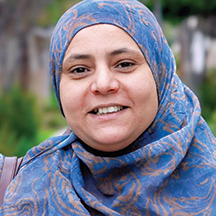How the crisis in Ukraine affects Egypt’s vulnerable families and children
The crisis in Ukraine is hitting the global economy at a time when the world is struggling to recover from the economic repercussions of the Covid-19 pandemic. This column examines the implications of Russia’s invasion for Egypt’s most vulnerable children and families, as they face the ripple effects of the crisis.


